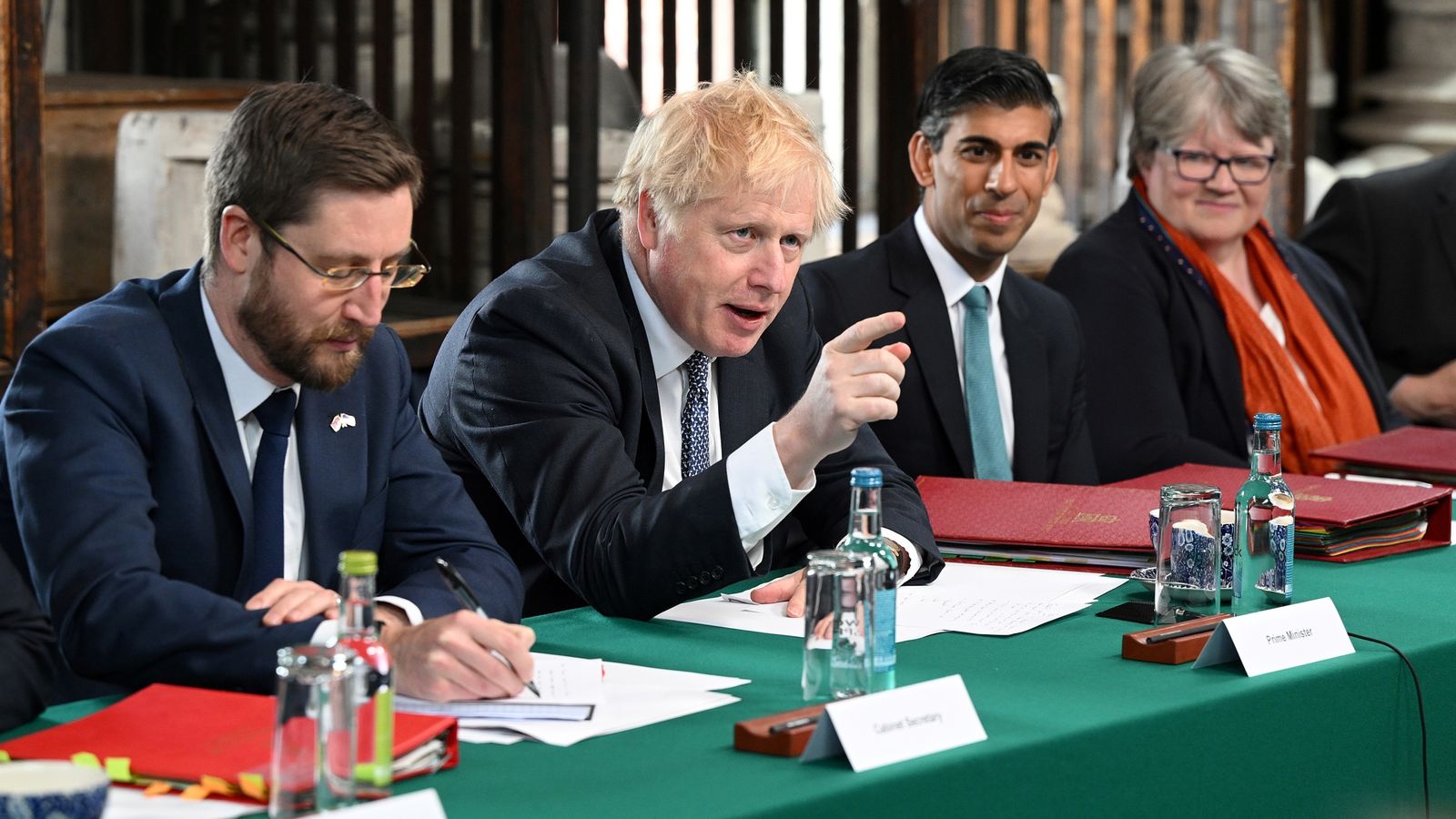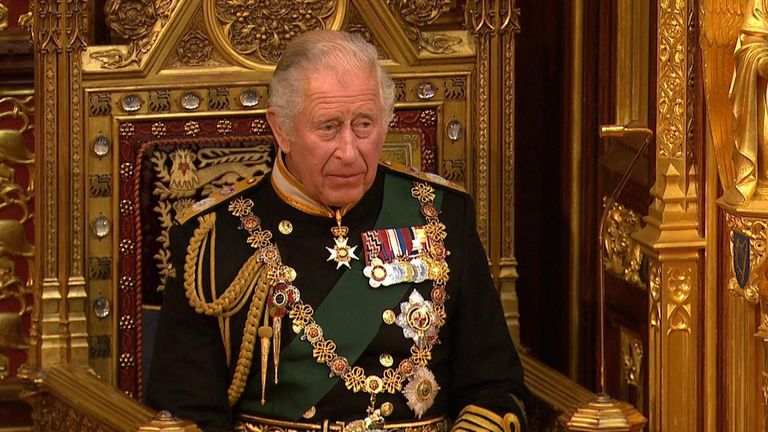Jacob Rees-Mogg has said that plans to cut more than 90,000 civil service jobs in order to free up billions of pounds for measures to ease the cost of living crisis does not amount to the return of austerity.
During an away-day with cabinet ministers in Stoke-on-Trent on Thursday, the prime minister asked cabinet ministers to report back within a month on how they can reduce the size of their departmental workforces to 2016 levels.
The move would imply a reduction of about a fifth of the 475,000-strong workforce, which the government says would save about £3.5bn a year.
Speaking to Sky News on Friday, Minister for Brexit Opportunities and Government Efficiency Jacob Rees-Mogg said the government is trying to get the civil service “back to normal” after taking on “extra people for specific tasks” including COVID-19 and Brexit.
Politics latest: ‘Stitch-up’ Labour selection row
Asked if reducing the number of civil servants constitutes a return to austerity, Mr Rees-Mogg said: “I don’t think it is because what is being done is getting back to the efficiency levels we had in 2016.”
He said the easiest way to cut staffing levels is “to have a freeze on recruitment”, as “up to 38,000 people each year leave the civil service”.
Mr Rees-Mogg added: “But there will be efficiencies that you can get in some departments through increased automation, increased use of technology, which is something that all sensible businesses will be doing perfectly reasonable and sensible ambition.”
He continued: “The only bit that is ideological is that we should spend taxpayers’ money properly and not wastefully.
“It’s about doing things properly. It’s about governing effectively and recognising that every penny we take in tax has to come off the backs of people working hard.”
The announcement was described as “either another headline-grabbing stunt or a reckless slash-and-burn to public services” by the head of the civil servants’ union the FDA.
It comes as Mr Johnson faces pressure to do more to address the cost of living crisis, which has seen inflation soar to its highest level in three decades – with Tory MPs pressing for tax cuts and Labour accusing him of being “bereft of ideas”.
The PM told the Daily Mail, which first reported the planned cuts, that the civil service had become “swollen” during the pandemic.
He added: “Every pound the government pre-empts from the taxpayer is money they can spend on their own priorities, on their own lives.”
The announcement appears to flesh out a comment from the PM during the Queen’s Speech debate earlier this week, when he spoke about needing to “cut the cost of government”.
Read more:
Cost of living worries sends consumer confidence into ‘freefall’
Cost of living: See how much your spending has increased
ITV News reported that the PM and chancellor met on Monday to start drawing up the plan, which would include a ban on vacancies being filled without special permission from ministers.
A government spokesperson said: “The PM and ministers are clear that the civil service does an outstanding job delivering for the public and driving progress on the government’s priorities.
“But when people and businesses across the country are facing rising costs, the public rightly expect their government to lead by example and run as efficiently as possible.”
Follow the Daily podcast on Apple Podcasts, Google Podcasts, Spotify, Spreaker
Civil service unions are already at odds with ministers, led by Jacob Rees-Mogg, who are trying to pressure civil servants who have been working from home during the pandemic to return to Whitehall desks.
Dave Penman, general secretary of the FDA union, tweeted: “Ultimately they can cut the civil service back to 2016 levels, but they need to decide what the civil service must then stop doing as a consequence.
“Will the Passport Office be cut back? Or the Dept of Health and Social Care?
“Unless they’ve got a serious plan, it’s either another headline-grabbing stunt or a reckless slash-and-burn to public services without a thought or care about the consequences.”
Speaking to Sky News on Friday, Mr Rees-Mogg accepted “there is a place for working from home” but said public services had at times been negatively impacted by remote working.
A Labour spokesperson said: “The cabinet said they would focus on the cost of living crisis facing families across the country.
“Instead of implementing an emergency budget they have chosen to let down working people once again through pointless rhetoric and lack of action.”
Amid the discussion on civil service efficiency, it was pointed out to Mr Rees-Mogg that he had arrived for his morning broadcast round alongside a handful of advisers.
Asked whether all were necessary, he said: “They don’t all work directly for me. They work within the Cabinet Office – and two are my special advisers.”


